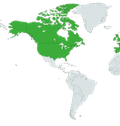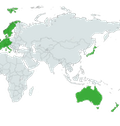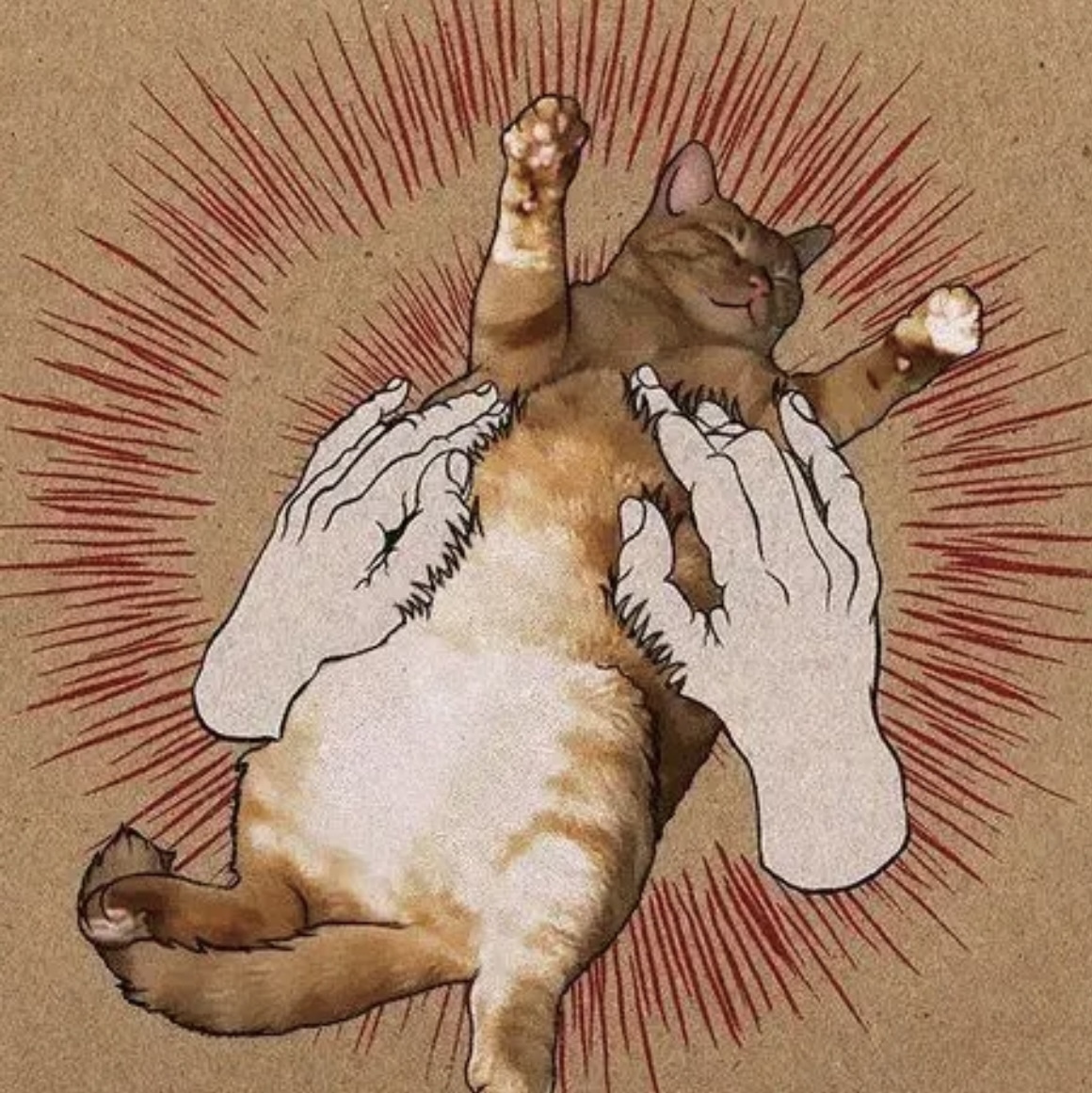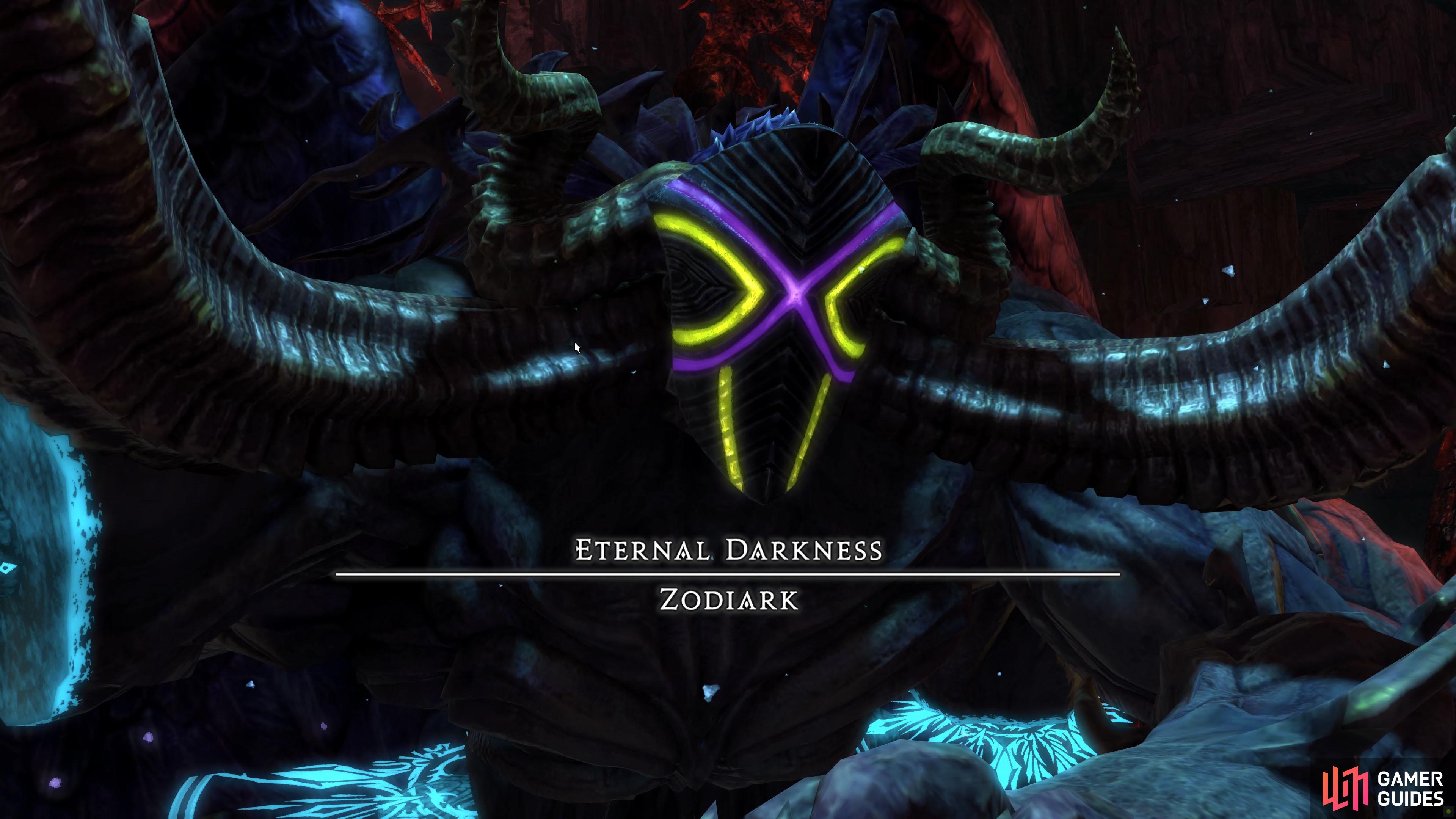Alright, so we pump energy into a chaotic system and obviously the extremes will get more exteme. Stronger hurricanse, colder hurricanse and snap freezes, deeper floods, wet bulb events further north than you think possible, whatever. This is the known unknown.
I am existentially afraid of the unknown unknowns. At what point do the phytoplankton I’m currently breathing the poop of have a mass extinction event? All of human civilization is about to drown on dry land and I spend 5 days a week maintaining software that charges people for turning on their lights.
I crave death I crave oblivion death to america death to capitalism death to me.
I’m told that even in the most extreme cases it’s unlikely to the point of impossibility that the anoxic atmosphere thing will happen.
Le scientists predicting the unkown unkowns
That’s not how that works
“Please tell me I’m being unreasonably doomer about shit.”
Ok, you are.
“Yeah ok whatever nerd.”
lol i’m not specifically trying to call you out i just thought the interaction was funny
no one want’s me to be wrong more than me but you really haven’t said anything stronger than “lol don’t worry about it”
well, to be perfectly honest, worrying about it doesn’t seem to be doing you any good. honestly? most of that shit is out of your hands. gotta accept your powerlessness at times, doesn’t make it better but you can then focus on shit you can actually affect.
The worry is the motivation for all my irl activities
odd, for me anyway, as worry just contributes to anxiety and thus paralysis.
For me excessive worry and doomerism were symptoms of depression. Once i got on meds, i can still look at the realities of the world, be against them, be radical, etc but it doesn’t cause me to feel so hopeless that i don’t leave my room for 3 weeks at a time anymore. And yeah maybe that is numbing out the true scale of how wet should be feeling about the horrors all around us, but it’s nice to have my life and ability to function back.
So if that’s what’s driving your feelings, you should do something about it medically: therapy, pills, etc.
But if it’s not depression’s manifestations, just know that the future is unwritten and really interesting things could always be on the horizon that change everything. But if not at least we can say “We told you so” i guess lol.
the specific thing you’re worried about is kinda known about though?
really? ya’ll know the parameters of phytoplankton extinction? please share cause your data ain’t from this planet
Last time an anoxic ocean event happened, terrestrial surface temperatures were about 12 C higher than they are now; there’s plenty of other stuff that’ll kill you before we come anywhere near that.
Removed by mod
Are you drunk.
very much so is it that obvious? My point stands on its own either way
lmao my guy
Just assumed that’s where the aggression was coming from. Would recommend maybe putting down the posting device for a bit.
Ya’ll are telling me to more calmly consider the extinction of my whole family? for real?
Consider it soberly, not drunkenly.
Okay I’ve been doing this for months and it just makes me want to get drunk.
Ask if it families will be extinct some day.
Death is inevitable for all of us. Don’t fear it. There’s no point.
The systems that govern out societies are far more fragile than the ecological systems. Global trade will break down well before the phytoplankton will die off. War, chaos and, (hopefully) revolution will come before human extinction.
In that period of chaos, there is hope that new just societies will emerge, which can navigate and control the changing climate. It is our job now to lay what groundwork we can for them to emerge.
Yes this is apocalyptic but its not doomer.
Global trade will break down well before the phytoplankton will die off.
You have no evidence for this and no reason to believe this.
My man, we’re not going to continue shipping oil across the ocean when there’s no phytoplankton. We’re not going to be able to do much by that point.
Those “other things” are going to break the trade systems sooner than later. You already the trade routes slow down to covid. You’re seeing it again with Ansarallah in the Red Sea. More things like that are coming.
I feel like you are agreeing with me that society is fucked and we are fucked. Are you not?
Apocalyptic but not doomer
Its gonna suck but we can survive this. Its like being a prepper but you prep by being a part of a community instead of hording guns and spam alone in a bunker. The bigger and more mobilized the community is the better off you are.
Practical anarchism will become very relevant. Mutual aid, affinity networks, etc. You don’t have to be an anarchist to do them. It’s just gonna be good praxis as capitalist society breaks down.
Just find like minded people IRL. Its the solution to all doomerism.
Practical anarchism will become very relevant.
been saying this since the old subreddit.
Let me give a more sober response lol.
The plankton are just an example of a species we rely on. There are dozens of these species, and we know from the recent snow crab die off that mass death events will happen and no scientists can predict them.
I think if we make it another five years without the first massive famine occuring we will be very very lucky. Should this urgency motivate some different tactics? Like maybe we could do something other than book clubs? Idk that’s all drunk me was trying to say.
There’s plenty of stuff happening that you personally can’t predict that might kill you; you’re still more likely to die in a car accident than you are in a famine, even with the new risks posed by climate change.
The cold truth of it is there already are famines - East Africa is dealing with simultaneous droughts and locust outbreaks and has been either severely food insecure or in famine since 2020. There will be more famines in the future, and they’ll largely impact the already poor areas of the global south who can’t afford to easily import food. There’ll be production failures in the North as well, but we could take a 50% hit to our food production and still have enough to feed everyone - that’s how much we waste. Prices will likely go up, yields will go down, quality will be lower, but we in the North will have enough food for a long time. If it makes you feel better.
Yes we absolutely should be doing more but I imagine those of us who have figured out what to do are out having an
 and not posting about it on Hexbear.
and not posting about it on Hexbear.
Do you want journal articles on how the process of ocean anoxia would take many thousands of years to occur even if the conditions were perfect for it to occur? Are you demanding we create novel debunks of the so called “Kump hypothesis” in this thread? It’s pretty pointless to debunk a random pop science journalist’s 20 year old deliberate misinterpretation of a climate science study about a chemocline excursion during the Devonian extinction, and which makes zero climate change predictions.
Literally nothing seems to be sufficiently convincing for you here, so maybe you should quit your job that you hate and go get a climate science degree so you actually know some of those unknowns instead of pretending they’re unknowable and dismissing every other person in the thread. Maybe go seek therapy because there’s clearly a lot more going on here than just fear about some flashy fictional climate change scare tactics that were disputed decades ago.
Those are articles about geological processes that take thousands of years. I’m concerned about a temporary mass due off event driven by biology. We just saw this happen with snow crabs, we know it can happen. Phytoplankton are just the flashiest example since I get to use the phrase “drown on dry land” but the list of species human civilization relies on is dozens of animals long.
Exactly, these are geological processes that take thousands of years. The thing you are worried about is not a real concern. You would be equally served worrying about a sentient teapot uprising or getting forever clone-tortured by an evil robot that’s angry at you for not building it. Mass dieoffs of plankton and cyanobacteria are simply not concerns that worry anyone informed.
The last time, really the only time this sort of thing occurred extensively was the K-T extinction event, which itself took tens of thousands of years. This is the fastest, most complete extinction event in history in which a massive asteroid, climate change on par with what we’re experiencing, innumerable massive volcanic eruptions that each make Krakatoa look like a mere science fair project, and incredible sea-level changes all teamed up to kill off 75% of all living species on earth. And this took roughly 60,000 years. During this whole period, CO2 levels were notably higher than they currently are, but so were O2 levels. As it turns out, the extra CO2 caused by ocean anoxia also lead to a huge increase in vascular plant biomass, and trees and forbs more than picked up the slack, resulting in oxygen levels about 30% higher than they are now. Even then, “drowning on land” did not happen.
There literally cannot, will not, ever be a day, a year, a decade in which all of these species suddenly die off. Extinction events are in fact a process that can only take many thousands of years. If the thing you’re worried about began at the same rate today, the amount of time it would take to get to the point of “drowning on dry land” would be roughly as long as the time period between humans leaving Africa and today.
Your fear is simply not possible. The snow crab mass death event was a problem better described as a crisis of carrying capacity. A heat wave that started in 2018 resulted in a simply massive increase in the population of snow crabs in the Bering sea, with scientists discovering a population boom an order of magnitude larger than the anticipated population increase. This carried the crab population far above the carrying capacity of their habitat, causing an inevitable mass dieoff and a population reset to below the carrying capacity. This is something that happens all the time in nature and is impossible to predict, but ultimately is not that scary. The equivalent of this phenomenon for plankton is called a Harmful Algal Bloom. The exact thing you’re worried about happens many hundreds of times a year at the largest scale physically possible, and we don’t really worry about these mass boom and bust events on a grand scale because that simply isn’t how plankton work.
Relax, take a break, disengage, and touch some algae.
God this is such a refreshing comment thank you for writing that.
If it also helps, the Clathrate gun hypothesis is also bullshit.
Short of a degree in climate science, where could I start to learn more about all this? Is there anything or anyone (maybe a subdiscipline or group of authors) to be cautious of?
Late response but I just read a shitload of scientific journal articles. Where some people read magazines or scroll twitter, I just read journal articles. I spent at least a dozen hours a week digging through PubMed, Nature, and PNAS.
I’ll see what I can find, thanks.
Wait no, don’t touch the algae bloom
The problem is not that you’re being unreasonably doomer, the problem is you’re more willing to fall over and die than to give up your lifestyle and work towards revolution. But that goes for the rest of us too.
bold of you to assume I won’t do whatever any of you tell me to do
Even the PSL has embraced electoralism like literally what should I do? what actions am I supposed to be taking? What words can I speak that won’t make me complicit in crimes beyond my comprehension?
I recommend looking to history. Get creative. Read about revolutions.
Yes yes, the revolutions all tell me to do a revolution of my own, and the imminent risk of suffocation is nothing but motivating. When do I get to storm the penthouses and megayachts? Revolution IRL WHEN? WHEN? WHEN!?? fuck you WHEN???
Yesterday. Are you not in the group chat?
if a revolution happened today or yesterday the evangelicals would use to establish christo-fascism
As opposed to what they’re doing now.
Bruh I used to attend church twice a week growing up.
You are lucky and you should feel lucky. The evangelicals are a massive threat. Death to Anabaptism.
Idk feels like we’ll just get more of what we’ve been getting for the last decade or so. “Once in a lifetime weather events” will become the norm, and I feel like even the most ghoulish corporations you can think of are planning for climate-induced resource shortages
Every year will be the same but a little worse
Climate modeling is 100% included in forecasts
There’s a Buddhist parable about getting hit with two arrows. You could imagine it in a scenario where you are on a battlefield and are struck by an arrow. But for some reason you freeze up and stare at it, so you get hit by a second. You should have taken cover.
Another way, more secular if you prefer that, is shooting yourself in the foot. That only happens when you’re not watching what you are doing or thinking.
Existential fear and the unknown unknowns aren’t something that you should seriously be afraid of. They are fears of fears, that something potential may be potential. Two degrees removed from reality. At least something more immediately threatening, you can act against.
Those more abstract dangers are for humanity as a group to deal with. Tackling them as individuals will result in anxiety. Focus on more immediate problems, or find others to tackle the more abstract problems together, knowing you still might not achieve anything material just yet

 First things first. Worry about rivers and bridges when they’re the in front of you, when they’re not hidden on the other side of the horizon.
First things first. Worry about rivers and bridges when they’re the in front of you, when they’re not hidden on the other side of the horizon.
deleted by creator
This is a great response and you really nailed the point drunk me was trying to make with the first few paragraphs.
deleted by creator
This world wants to kill you. It scorns at your existence. Never give the miserable fucks the satisfaction. I’m sorry things are so hard. You and I are both going to make it through.
No I’m completely comfortable living a life of spite I’m just concerned I won’t be able to breathe pretty soon
Fair enough. There is positive progress on climate change internationally. Symptoms will continue to get worse for years, however many large countries like the us and china are making huge strides in the swap to renewable energy.
You’ll live long enough to see things get better.
I’m not convinced we will leave any fossil fuels unburnt without abolishing capitalism. Renewables will displace fossil fuel consumption more and more as prices drop and as compatible infrastructure is built, but as demand goes down the price of carbon fuels will also drop, when it gets low enough we’ll of course start burning again. The industry has and will continue to plunge money into making extraction cheaper and demand for energy will likely continue to increase. It’s hard to imagine energy ever being so cheap that it doesn’t make sense, as in short term profit sense, to burn at least some fossil fuels. It’s possible that we get close enough to net 0 that it’s a rounding error but it seems at least equally plausible we end up at 30+ % of where we are now, if so all that carbon still ends up in the atmosphere within a century or two.
Even if we stopped burning everything right now, the feedback loops will continue, they are self sustaining at this point.
Look worst case scenario we simply direct a massive asteroid into a collision course with mercury creating a ring of dust between the earth and the sun, I’m sure there are some minor details to be worked out but the theory is sound
Or, maybe stop Venusforming Earth before we try Terraforming Mars.
There are a lot of things to worry about with respect to climate change, but this is almost certainly not one of them. If something like this happened, it would take place over the course of thousands (at least–more likely tens-to-hundreds of thousands) of years, and there would be many, many other fatal problems for humanity along the way. If we were on the road to this scenario (or something like a Venutian hothouse scenario), human civilization would be gone for other reason eons before we ever got there. Climate change is not going to destroy the world, or wipe out all life on Earth: the reality of our current trajectory is much more pedestrian, and “just” represents the death and immiseration of billions of people, mostly in the global south (at least at first).
I keep hearing the the global south is going to be the first to feel the most predominant pain of this, but I don’t quite understand how that conclusion is reached. I would have imagined that it’s going to be felt by the periphery and semi-periphery to similar degrees, regardless of north and south…? Like, empire is just going to absorb problems the same way it has for decades now; the core shrinks, wealth flees, and most people are abandoned to sort it out for themselves. Like hurricane Catrina, or the wildfires in California and Canada (I don’t know how Australia has dealt, now that I think on it…)
If you’re familiar with the neuroscience research on dementia, you’ve maybe heard people talk about “cognitive reserve.” The basic puzzle is similar: we have a good understanding of what the organic basis of dementia is, but it turns out that two people can have similar levels of organic degradation–brain damage–but show markedly different levels of actual functional cognitive decline; one person might be barely self-sufficient, while the other shows almost no symptoms, and their brains look basically identical. Cognitive reserve helps explain this: if you’re educated, otherwise healthy, used to thinking critically and reasoning out problems and so on, you can absorb more organic damage without loss of functionality.
In climate policy discussions, we talk about something similar called “adaptive capacity.” This has a ton of overlap with wealth, but even more so with the kinds of material conditions that Marx talked about just through the lens of climate change. Adaptive capacity is, as you might expect, the set of material conditions that make it possible for a country (or city or region or continent or whatever) to absorb climate change without people starving, or supply chains breaking down, or other harmful impacts becoming super significant: it’s a kind of socio-economic cognitive reserve. If your economy is primarily agrarian, has a weak social safety net, is relatively poor, is mostly coastal (or already quite warm) or otherwise already eeking out an already marginal existence, even a small climatological shock has the potential to wildly destabilize things to the extent that it’s impossible to recover from.
On a household level, this looks like the poverty trap. Consider two households: one is barely scraping by, and the other makes $250,000 per year. When they’re both subjected to an economic shock, what happens? Both see their incomes and resources depleted, but the rich household has enough assets that they can absorb the shock wait for a recovery, and come out the other side fine. The poor household doesn’t have this luxury. If the shock is something like (say) a medical emergency, maybe the household has to sell their only car to help pay for the ambulance ride. Without a car, they have trouble getting to work, so eventually they lose their jobs, causing them to get evicted, making it harder to get a new job, etc. We’re all familiar with this kind of material death spiral.
Adaptive capacity is like that on a national level, and that’s why the global south is going to get hit harder by climate change, at least at first. Of course, the negative repercussions aren’t going to be confined there–no matter how much cognitive reserve you have, enough damage will eventually result in dementia. Moreover, things like refugee crises caused by the rolling catastrophe sweeping across the global south will eventually hit the

 . It’s eventually going to be bad for all of us but, like most things, it’s going to be worse (and hit sooner) for the people who have already had their resources systematically plundered in order to give the United States more adaptive capacity.
. It’s eventually going to be bad for all of us but, like most things, it’s going to be worse (and hit sooner) for the people who have already had their resources systematically plundered in order to give the United States more adaptive capacity.Thank you for the explanation
I am existentially afraid of the unknown unknowns.
You don’t know that everything will be okay. And you don’t know a situation in which that unknown could be known. It’s an unknown unknown. You can’t be afraid of all the unknown unknowns because that’s just being afraid of what you don’t know, which is everything. You can live your entire life and only know what you know, but never the things you can’t know. Climate change is just an excuse to vent about a deeper fear and lack of control.
Everyone fears the unknown unknowns. Every generation. Every person who would never get to live in a world where climate change was possible. You’re not the first person or the first group of people in history to fear them. You push on, not because you’ll eventually known the unknowns or survive them, but because you don’t actually know what’s going to happen. Because you don’t know what moment of history you’re actually in, because history hasn’t happened yet. You’re still living it. The hand-wringing comes from trying to imagine yourself from a future where your life is history, but that’s not how time works for us.
bruh this is bleak af and I know you know that
You can’t have it both ways. I mean, you can, but we don’t have to take you seriously about it. You can’t lean on all this rational epistemology stuff to prove that we’re doomed and the immediately throw it out the window when it works against you. If you want to stick with the realism of the situation then you can’t be a doomer and if you disregard realism then there’s no reason to choose to be a doomer.
I’ve yet to see anything refuting my arguments though. What is working against me? I see nothing against me. Reality is on my side, we’re all about to drown.
They literally just did. Unknown unknowns are literally just as likely to be positive events as negative events, because they are by definition unknown. You can fear it, but it is not a rational fear, unlike a fear of climate change and catastrophe, which are pretty well substantiated fears if you’ve been following the science. That is not a fear of unknown unknowns, that is a fear substantiated in scientific hypothesis, which means it can be addressed and possibly solved rationally. Unlikely at this point, but the point stands, what you fear is based on what you know, not on what you do not know.
You can always be irrational, just don’t expect us to take you seriously.
At what point do the phytoplankton I’m currently breathing the poop of have a mass extinction event? All of human civilization is about to drown on dry land and I spend 5 days a week maintaining software that charges people for turning on their lights.
You’re worrying about the wrong thing.
You’re far more likely to die from nukes. Humanity is not going to be made extinct by the direct effects of climate change. What’s far more likely to happen is climate change leads to societal instability which leads to the nukes flying. By the time phytoplankton reaches the point of mass extinction, humans would have long since wiped out every single vertebrate and most invertebrate with nukes.
And by wiping out vertebrate life with nukes, you don’t have to nuke every single square inch of earth. You just have to nuke enough cities to cause gigantic firestorms which blanket the Earth with smoke ie nuclear winter. There’s a debate among scientists on how much cities you have to nuke before the snowball effect happens, but with enough nukes, it’ll happen. Nuclear winter and societal collapse means the population starves to death. If you aren’t the lucky ones to be instantly vaporized or turned to red mist by pressure waves, you’ll either die from radiation poisoning or starvation. It’s starvation that will ultimately kill humanity if the nukes start flying.
As a final note, you should read about all the close calls we had towards the “nukes fly everybody dies” lose condition of humanity. So many close calls. Outside of complete and total nuclear disarmament, our luck will eventually run out if we don’t do something about it.
When I was 20, I wanted to plan the rest of my life around avoiding the negative repercussions of global warming. I eventually gave it up because it was both impossible and made me feel sick to think about. I would get this horrible empty pit in my stomach.
Now, in my later 20s, I am just grateful that I got to live this little bit, see and feel some beautiful things. Call me greedy, I am just around to see how much more I can get away with before my time/ all of our times are up.
(Besides, some of the most beautiful things I’ve seen and felt were when things were worst for me.)
Anyway, I’ve seen your posts around a bunch and you seem cool and funny. DM me anytime.
I’ve come to accept, even despite my instincts or tendencies to lament and sink into periodic despair, that living is not a rational thing. It must be irrational: Irrational optimism.
Generations before us and after us have experienced the end of the world, the end of their people, the end of their society and culture, through war, famine, disease, and death itself. We still lived on and echoes of the past have survived until those echoes became new things and new people.
Immortality of the species was always a fantasy, but we still have to try to exist and thrive. To strive for meaning, to imbue our lives with purpose and love. And seek to be part of a continuity of hope in that respect; the Christians would call it resurrection.
Like the prophet Jeremiah, who saw the destruction of Jerusalem and Judea by Babylon, who still saw hope and life for the Jewish people after its apparent annihilation by Babyllon, we must have faith that we will overcome and see peace and survival become a reality.
You see my son, at the beginning when it created the universe, the Demiurge has doomed us all to the mortal coil and thus we suffer in the Hell that is our material reality.
Our creator is a twisted being that cares not for our suffering.
The hurricanes, floods, wet bulb events, and plankton extinctions are a tapestry of utter desolation that was brought forth by the Demiurge’s servants on this earth, the ruling class of demonic parasites that also do not care about us, nor our suffering, for they are hollow godforsaken beings that seek only the perpetuation of their own death grip on the steering wheel of this infernal machine called capitalism which the angloid lost control of during the AD > 1700 I guess.
After untold millions died to imperialist genocide brought forth upon Earth by its rampage, it currently is on track to kill billions more.
Even the very reality of entropy ensures that the unknown that will come to pass will probably be awful if left to its own devices.
All you can count on is everyone getting angry enough to kill the demon, destroy the overlord, spit acid bile into the face of the adrenochrome-guzzling child-sacrificing world-starving monsters that have doomed us all to this wretched fate. To cancel the apocalypse.
If you are truly afraid, then when you know who is responsible, after you mourn our stolen future, let your fear turn to wrath, and may your wrath crystalize into principled action. As His Holiness St. Bhagavan Shree Matt Christman (PBUH) says, nobody can know what “principled action” will be, only time and your personal circumstances will tell, the imperative He gives us against the Demiurge is to join together in whatever capacity we can to help those around us such that the machinery to build a revolutionary answer, or an oasis from the apocalypse, can be constructed.
May His Large Adultness guide you to the proper path,

Fr though even if humanity dies something else will evolve and hopefully learn from our mistakes.
I found a YouTube link in your comment. Here are links to the same video on alternative frontends that protect your privacy:
you’re right, those are pretty scary, but Existence itself is scary. this isn’t a trite claim that “the world is a scary place”, but more that the required acceptance of consciousness as a material phenomenon can be a pretty horrifying concept, and we have to come to terms with it. so maybe that helps: Understanding that this dread is more fundamental than just the knowledge humans – like every other species in history – inevitably must go extinct, and that extinction will perhaps be sooner and more ignoble than we hope. This is a dread which you really would strive to master in any lifetime. whatever happens, there is a good chance it will be interesting to watch at least.
Now, before you conclude this is just totally tangential rambling, I’ll refer to something specific you wrote: “I spend 5 days a week maintaining software that charges people for turning on their lights.” This is definitely not an irrational observation. you should be concerned about whether your work is meaningful and so on, and you should be prioritizing whatever you need to do to change that. Obviously, youd’ve put a lot of work to get the career you have now and it probably feels, at least a little, like you’re stuck on a certain path, but the guys freighted to Treblinka weren’t even on a fixed path, so suppose with me that a software engineer has more than a couple degrees of freedom. I trust you can find some meaningful use for your talents, and eventually you wont need to waste them on any worthless Smart Home SAAS anymore.



















